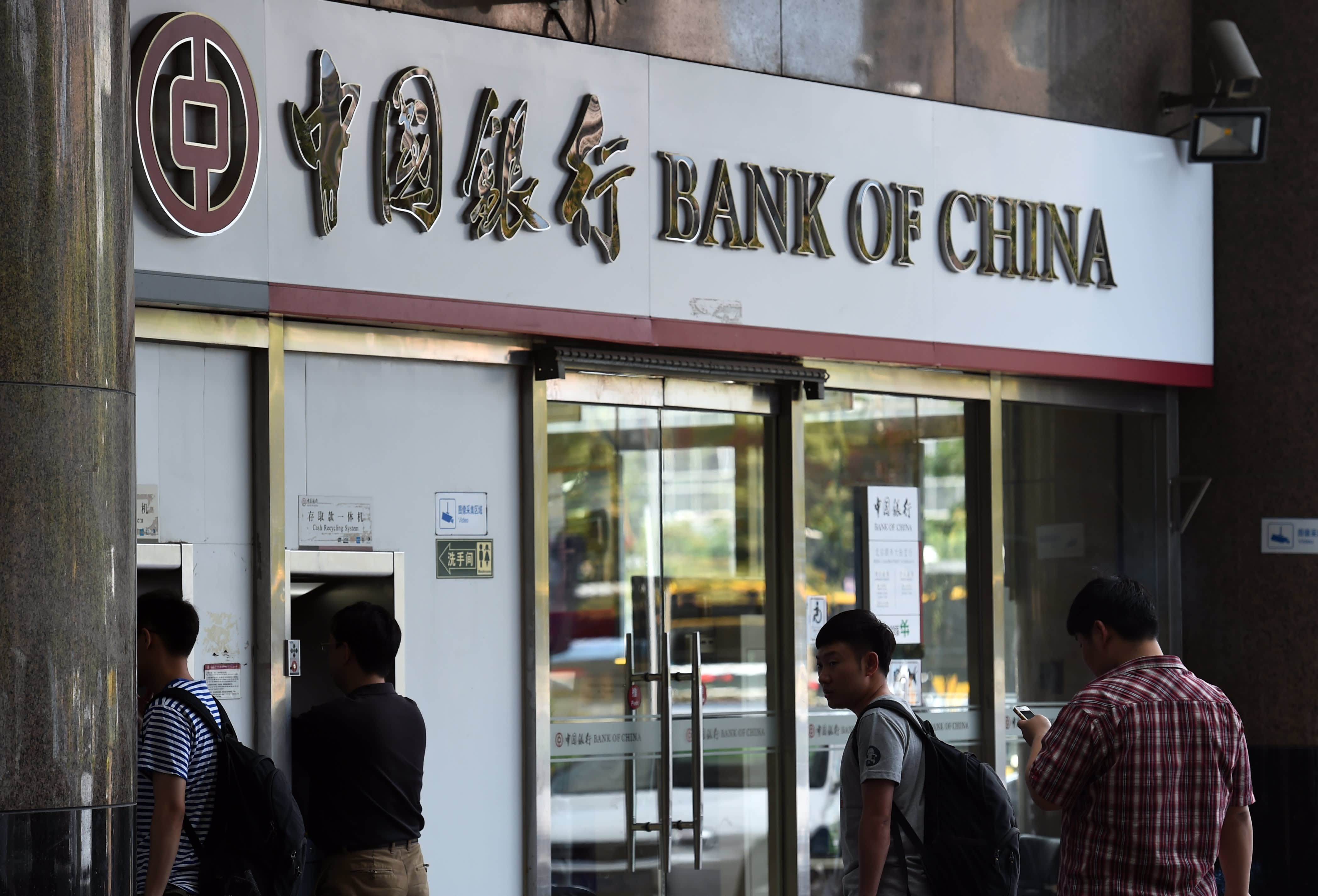People wait outside a Bank of China branch in Beijing on July 11, 2014.
GREG BAKER | AFP | Getty Images
Banks in China are likely to record greater declines in profits in the second half of this year as bad loans are set to rise further as a result of the coronavirus pandemic, according to Fitch Ratings.
In January to June this year, Chinese banks collectively lost around 1 trillion yuan ($146.2 billion) in net profit — or a 9.4% decline — compared to first half of 2019 on lower margins and higher expected loan losses, the ratings agency said in a Wednesday report. The five Chinese mega banks reported at least 10% year-on-year fall in profit — their biggest earnings declines in at least a decade.
Fitch said Chinese authorities have aimed to dispose 3.4 trillion yuan ($497 billion) worth of bad loans from the banking sector this year. Only around one-third of that — or 1.1 trillion yuan ($160.8 billion) — were written off in the first half of 2020, the agency added.
China, the first country hit by the coronavirus, is among the earliest to mark a recovery in its economy. But many challenges remain and the pressure on Chinese banks’ profitability could persist into the next year, said Fitch.
In addition to the pandemic, Fitch cited the ongoing U.S.-China tensions as an uncertainty weighing down prospects in the Chinese banking sector.
“Despite the challenging outlook on profitability, we believe the Chinese banks still aim to pay dividends for 2020, which could limit their pace of growth,” it added.
Chinese banks have been at the front line of the government’s effort in managing the pandemic’s economic hit on households and businesses. Lenders in China — many of which are controlled by the government — were asked by Beijing to sacrifice returns to help companies by lowering lending rates and deferring repayments on loans.
But Fitch has maintained its “stable” outlook for the operating environment of Chinese banks. It explained that by actively recognizing and resolving bad loans, China’s banking system can prevent a large build up in credit risks.
Still, shares of Chinese banks have continued to lag the broader markets on the mainland.
The FTSE China A 600 Banks Index — which tracks large- and mid-cap banks listed on mainland exchanges — declined by around 10.8% so far this year, while the broader FTSE China A 600 Index jumped 17.1% during the same period, according to Refinitiv data.
